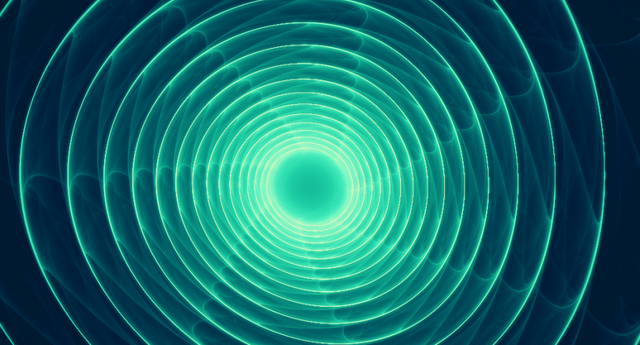Why Consciousness is Infinite

Just what is awareness? Why does it seem so elusive, so ephemeral? Why can’t we seem to be able to touch, or locate or grasp it? There are those in modern science who say consciousness already has been located, it is found inside the brain. Their thesis that is consciousness is an “emergent property” of the brain. When enough neurons aggregate together, they form a network of interconnections called awareness. That all sounds pretty intelligent, and perhaps even accurate at a glance. But I humbly point your attention to creatures like plants, jellyfish, starfish, and the like, all of which function in highly complex manners, react and respond to their environments in ways that give every indication of awareness, all done with no brains, and no neurons in sight.
Plant awareness is so developed they can even learn. Experiments have been done where plants are dropped about a foot at regular intervals. At first the plant produces a kind of “stress” response; retracting and curling its leaves. But eventually, after having been dropped enough times with no apparent damage, the plant stops reacting to the fall. That’s called habituation, and it’s one of the primary forms of learning.
But there’s more. Not only did the plants learn that falling was harmless, but they remembered it too. Even after having a break of about a month, when dropped, the plant no longer responded the way it initially did. It habituated a stimulus and retained the information. That sounds like consciousness to me.
 (Mimosa pudica, the ‘feeling plant’)
(Mimosa pudica, the ‘feeling plant’)
If learning and memory are key factors of what we consider part of awareness, (what else could they be?) then we can no longer attribute awareness to be the sole byproduct of a brain.
So, where did we get this idea from? Well, the brain certainly plays a definitive role in the quality of consciousness we experience. If the brain is stimulated in a particular way, chemically, electrically, or otherwise, consciousness changes in predictable and measurable manners. We can even produce spiritual or religious experiences with specific electrical input to the brain. This led scientists to believe that such moments are mere static, or neuronal misfires which superstitious people misinterpret to be an encounter with real divinity.
However, some rather hasty conclusions have been made in this regard. For instance, just because stimulating the brain alters states of consciousness doesn’t mean the brain produces consciousness.
Here’s something to consider.
When you turn on your car radio and it plays a specific song, do you assume that the radio has created that song? Probably not. But wait. If you turn the dial on the radio, an entirely different song comes on. Aha! We’ve just proven that the radio creates music, haven’t we? By manipulating the radio’s input, we’ve deliberately induced a different output. And furthermore, that output is specific and measurable. Every time I turn the radio to the country music station, I hear country music. It happens without fail. Ergo, the radio not only created country music, but all kinds of music it emits. And further yet, if I destroy the radio, I’ve also necessarily destroyed every kind of song its ever played forever.

(Look at me, creating Mozart. Wheee)
And there’s nothing presumptuous or rushed about that reasoning at all.
I know, this may seem like a silly, tongue-in-cheek metaphor, but it’s literally how most of the scientific community thinks with regards to consciousness. But this metaphor gives us something interesting to contemplate. Certainly, the brain plays a role in consciousness, but it isn’t necessarily its sole proprietor Again, loads of brainless creatures act in ways that mirror consciousness. (do you consider bacteria to be intelligent? How about cells? Where are their brains?).
Because of this, it seems equally, if not more plausible that the brain is a receiver and transmitter of intelligence rather than its manufacturer. This perspective is rather interesting, because it slots in nicely with our direct experience.
While most people assume they’re a sort of conscious ego locked up within their body, -typically their brain- we don’t necessarily feel this to be the case.
Here’s an exercise in self inquiry.
In your own experience, where exactly in your body is your awareness located? Point to it. And be precise. This is more difficult than it sounds. In fact, it’s impossible. The moment we try to assign a specific locale to our awareness, things get kind of murky, and we point to a vague area, typically in our head, which doesn’t really feel quite accurate to us if we’re honest. But it has to be somewhere in the head, right? Not so. In the East it’s perfectly common for an individual to locate himself in the chest or solar plexus. Are they wrong? Or is it unreasonable to define yourself as an entity inside your head?
Furthermore, what is the shape of your awareness, and its size? Something located within the body must have shape and size, right? So, draw it. Trace the boundaries of your consciousness in the air with your finger. Find out where it begins and where it ends. Frustrated yet?
From direct, personal experience it isn’t clear that awareness is located anywhere inside the body, or anywhere period. Do you know what we might call something which does not have any spatial limits? Something without shape, size, definitive location, or boundaries? Infinite seems appropriate.
But wait, there’s more.

(The wormhole of time)
When is your awareness? When is it located in time? With any perception, object, or event, you should be able to quickly determine when it emerged and when it ended. Even if you can’t quite recall exactly when something emerged, you do at least know that it emerged.
I invite you to try that with your awareness. Can you recall exactly when it began? Does anything about awareness suggest to you that it had a beginning? And finally, can you recall an experience in which it vanished?
“Gotcha!” someone might say, what about deep sleep? Consciousness is certainly absent in moments of deep sleep.
Well, not so fast. There are a few things wrong with that. First of all, breathing and swallowing are still possible in deep sleep, both of which are semi-conscious activities (they can be handled by either the somatic or the autonomic nervous system). If you pinch someone’s nose while they’re asleep, regardless of what phase they’re in, they’ll wake up, and likely rather angrily. If, in that situation, consciousness was entirely absent, a person wouldn’t notice something like that happening, and probably die.
Sleep talking is also prevalent at all stages of sleep, including deep sleep. It isn’t just murmuring either, people can speak in full-blown sentences while sleeping. Sleep talkers also occasionally carry on a dialogue with people, even following the social rules of pausing to let the other person have their say.
Exactly how unconscious can a person be if they’re having polite, grammatically correct conversations with some imaginary folk?
Furthermore, there’s something about deep sleep that seems absolutely intoxicating. We need it. People who are deep sleep deprived quickly go insane. Have you ever woken up from a short, dreamless power nap? You likely felt absolutely rejuvenated afterwards. You might have even thought, “Wow, that was such a great nap”. But hold on a minute. If you aren’t conscious during the nap, how could you possibly make a statement about the quality of it? If you truly weren’t aware, you wouldn’t even know that you fell asleep, let alone that you enjoyed it.

(No consciousness here, whatsoever.)
Whatever vanishes in deep sleep it isn’t consciousness. It’s likely that your thoughts, emotions, memories, sensations and perceptions vanish, leaving consciousness almost like a blank slate. The contents of your awareness may vanish in deep sleep, but awareness itself remains present throughout in the form of nervous system response and use of language. Thus, deep sleep is (probably) not the end of awareness.
So, consciousness doesn’t really appear and disappear like everything else does. It’s the only aspect of your experience that remains continuous and unchanging throughout your life. Your personality, thoughts, moods, social status, relationships, interests, and even the very cells of your body are in a constant state of flux. Everything that you’re aware of is subject to change, to time. But awareness itself is completely still. It has no age, even if your body gets older. It stands outside of any time frame, forever in the present.
Now, what’s the proper word for something that hasn’t emerged or vanished, and remains perfectly changeless and still across time? Eternal might be a good start.
So, tying this all together, it seems (and that is a very strong “seem”) like consciousness knows no limits in either space or time. It isn’t bounded in any location, shape, or form, and it isn’t restricted to any particular moment in time. So, what’s a good term for something that extends infinitely through space, and eternally through time?
This time, I’ll leave the answer up to you.